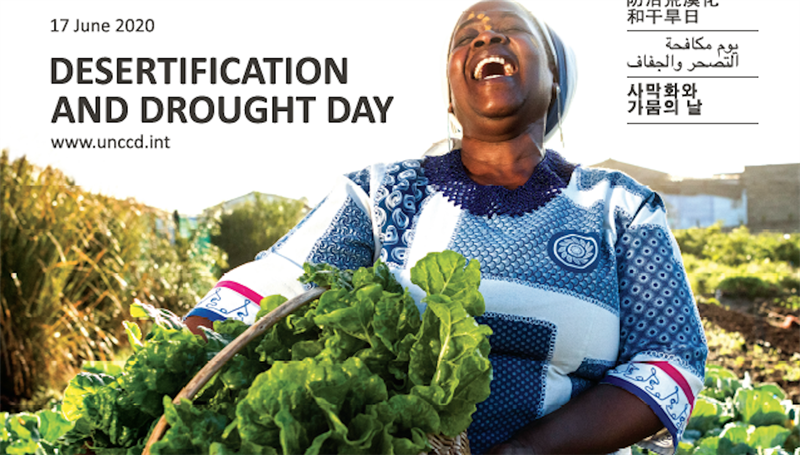THE OBSERVANCE IS PARTICULARLY RELEVANT TO OECS MEMBER STATES GIVEN LIMITED LAND RESOURCES.
 The Organisation of Eastern Caribbean States (OECS) joins the world in commemorating World Day to Combat Desertification and Drought 2020 under the theme “Food. Feed. Fibre.”
The Organisation of Eastern Caribbean States (OECS) joins the world in commemorating World Day to Combat Desertification and Drought 2020 under the theme “Food. Feed. Fibre.”
Every Year on June 17, the United Nations Convention to Combat Desertification (UNCCD) is celebrated – which is an international legally binding agreement on land issues. The focus of World Day to Combat Desertification and Drought 2020 is particularly relevant to member states of the OECS, given limited land resources, patterns of land allocation and utilisation, and persistent struggles to realise the ideal of “sustainable production and consumption.”
It highlights the need to re-examine the modes of agricultural production and general consumer behaviour in the region. This is now an opportune time to explore more effective land use planning and management strategies, including the re-adoption of relevant traditional, but advanced practices.
This year, living under the shadow of COVID-19, Ibrahim Thiaw, Executive Secretary of the UNCCD reflected on a simple but fundamental land ethic, stating: “If we take care of nature, nature will take care of us. We need nature, nature does not need us. If we intrude into nature’s wild spaces and degrade the land, we can expect more zoonotic diseases to emerge; we can expect the services land provide us with – healthy food, clean air and water – to disappear…. Each of us holds the power to protect the land for each choice we make in our daily lives. And we can still choose to protect nature. By doing so, we in fact protect our future.”
On this World Day to Combat Desertification and Drought, the OECS Commission reiterates its commitment to continue working with its Member States towards achieving the critical goal of land degradation neutrality (LDN) as articulated by UNCCD 195 Parties.
The principle of LDN (the area of productive land remains stable or increases within a specified landscape) is implemented through the Commission’s various programmes, actions and projects. These are also aimed at strengthening the economic, social, and environmental resilience of Member States to the impacts of drought and climate change using integrated and participatory approaches.
Some of these approaches include but are not limited to, Integrated Landscape Management (ILM), Sustainable Land Management (SLM), Integrated Watershed Management (IWM), and Integrated Water Resources Management (IWRM).